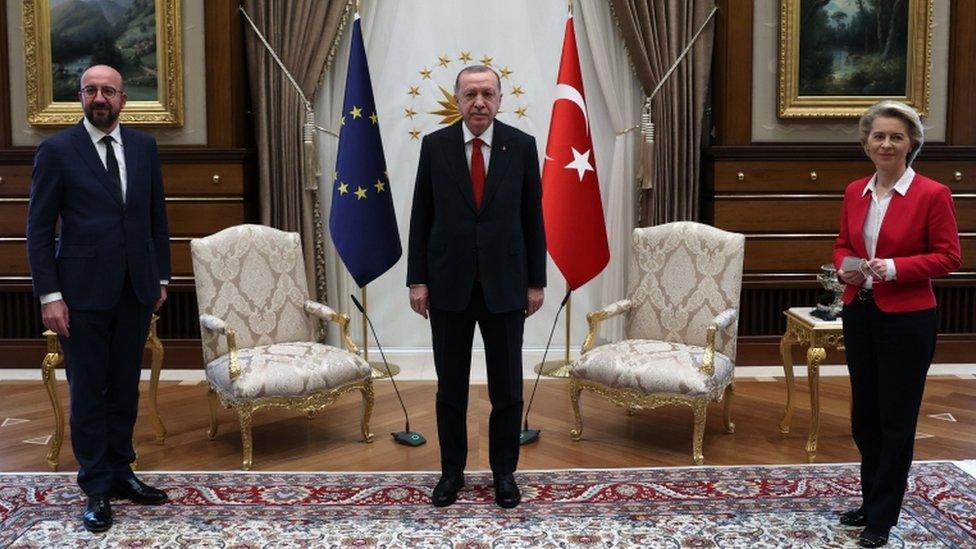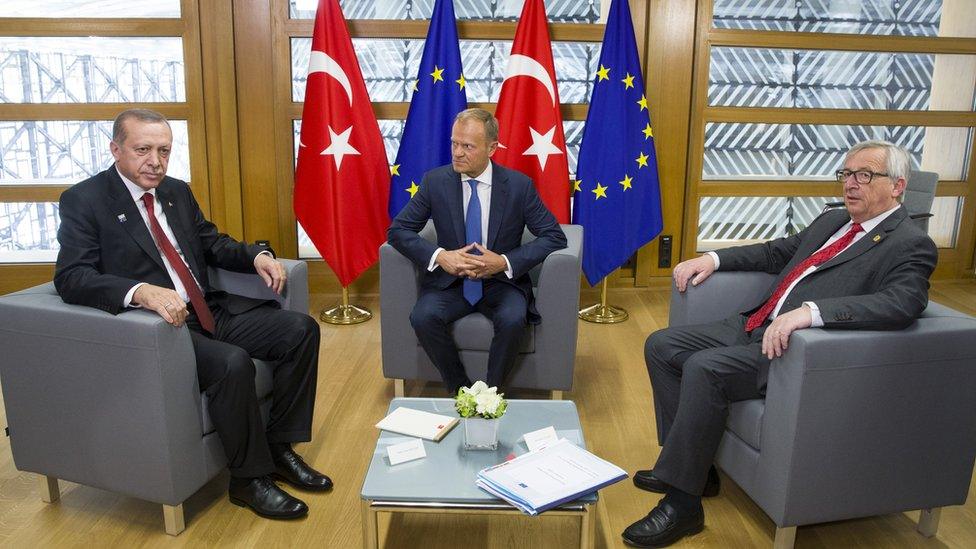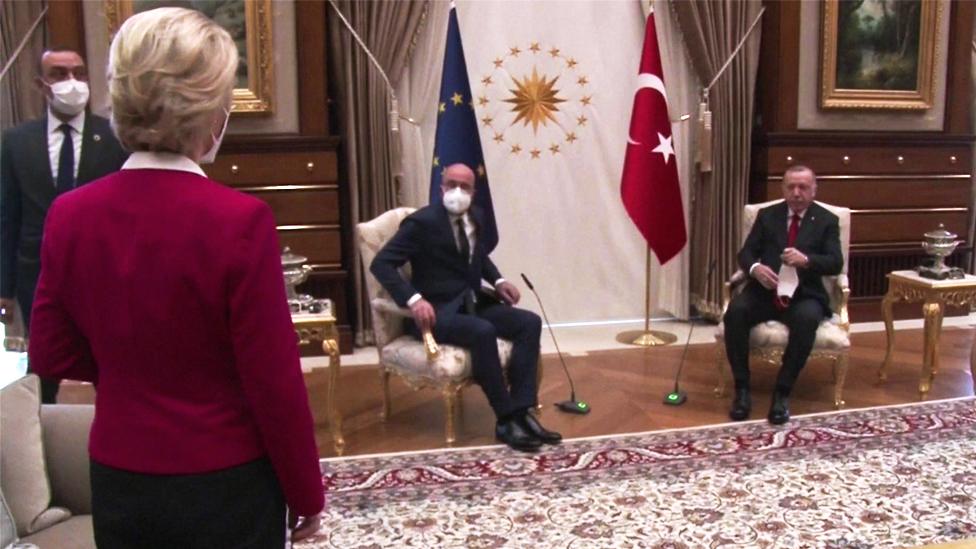Turkey blames EU in 'sofagate' diplomatic spat
- Published
Ursula von der Leyen was left without a chair during an EU visit to Turkey
What began as an attempt to repair tense EU-Turkey relations has turned into a diplomatic spat that has been dubbed "sofagate".
When European Commission President Ursula von der Leyen was left standing because of a lack of chairs in Ankara, she reacted with an audible "Ahem".
Neither Turkey's president nor Mrs von der Leyen's EU colleague Charles Michel came out of it looking all that good.
But Turkey has now laid the blame on the EU for "unjust accusations".
Foreign Minister Mevlut Cavusoglu was adamant on Thursday: "The protocol at the presidency met the demands of the EU side. In other words, the seating arrangement was designed to meet their demands and suggestions."
That is not quite how Mr Michel saw it, the former Belgian prime minister, who represents the EU's 27 member states as Council president.
He pointed in a Facebook post to Turkey's "strict interpretation of the protocol rules, external... [that] gave rise to a distressing situation: the differentiated - even inferior - treatment accorded to the president of the European Commission".
What went wrong?
The meeting at Recep Tayyip Erdogan's presidential palace followed months of "meticulous preparation and diplomatic effort", as Mr Michel made clear.

There were only two chairs, so Mrs von der Leyen was left to sit on a sofa
But when the three leaders came to sit down, there were just two chairs, one with a Turkish flag behind it, the other with an EU flag. The two men take their seats in two gilded Ottoman-style chairs, while the Commission president is left standing, making her displeasure absolutely clear with an "Ahem" ("Ähm" in her native German).
Mrs von der Leyen eventually sits down on a sofa, well away from the Turkish leader and opposite the Turkish foreign minister.
There is precedent here. When the Turkish leader visited Brussels in 2017, the two men heading the European Commission and Council sat beside him in comfy armchairs.

When the Turkish president visited Brussels in May 2017, there was no such diplomatic fallout
How it turned into a spat
Video of the Commission president's discomfort went viral, with criticism of both the Turkish hosts and Mr Michel's decision to sit down while his colleague remained standing.
Dutch Euro MP Sophie in 't Veld complained it was a deliberate slight by the Turks that "puts into question the equal treatment" of Mrs von der Leyen, and that it was not a coincidence she was the only woman in the room, external.
It did not go unnoticed that Turkey's recent decision to pull out of the Istanbul convention on violence against women was on the agenda for Tuesday's talks.
Iratxe García Pérez, leader of the Socialists and Democrats in the European Parliament, external, said it was "shameful", with Turkey first leaving the Istanbul convention, then leaving the Commission president without a seat. She condemned the "micromachismo and rudeness" of both Mr Erdogan and Charles Michel.
The European Commission made its feelings known too, but more diplomatically. Mrs von der Leyen expected the institution she represented to be treated with appropriate protocol, it said, and she had asked her team to ensure it never happened again.
Mr Michel said he was "saddened by any suggestion that I may have been indifferent to the protocol misstep with respect to Ursula". While photographs of the meeting had given the impression that he was "indifferent" to the situation, nothing could have been further from the truth, he said.
The Council president also regretted that the issue had overshadowed the meeting itself.
Ties between Turkey and the EU have been strained for years, over the influx of migrants and recently over Turkey's drive for gas in the Eastern Mediterranean. After the meeting, Mrs von der Leyen held out hope of revising a 2016 deal under which the EU pays Turkey to prevent large-scale arrivals in Greece.
- Published7 April 2021
